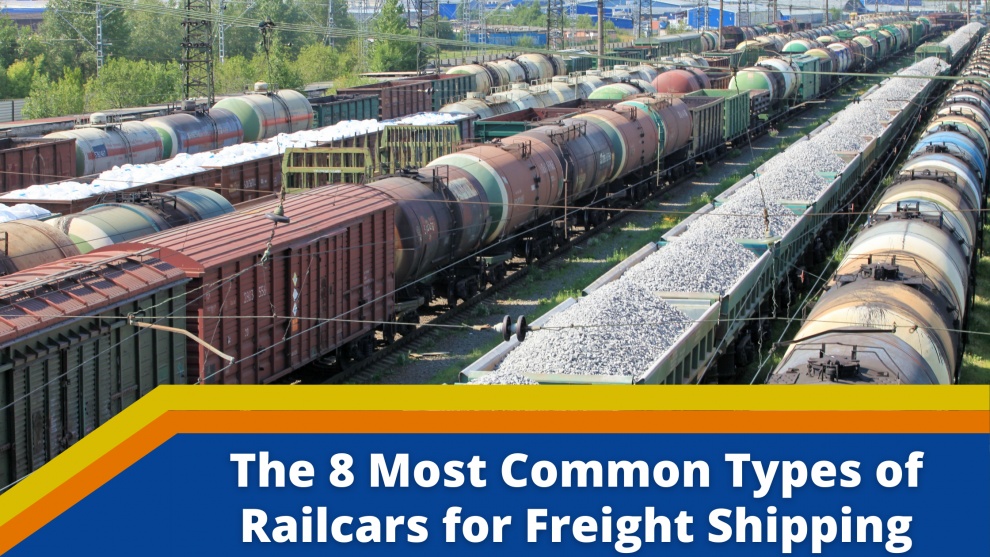
If you've ever sat at a railroad crossing and watched as the train rolled by, you probably noticed the sheer variety of different rail cars (and no, we're not talking about the graffiti).
That's because the "one-size-fits-all" days are long gone in the freight shipping world, and rail yards are no exception. There are hundreds—maybe even thousands—of different types of cargo being hauled every day, and many of those require specialized cars to accommodate them.
While there are dozens of uniquely designed cars, we'll break down the eight most common types that are used in rail freight shipping today.
BOXCARS
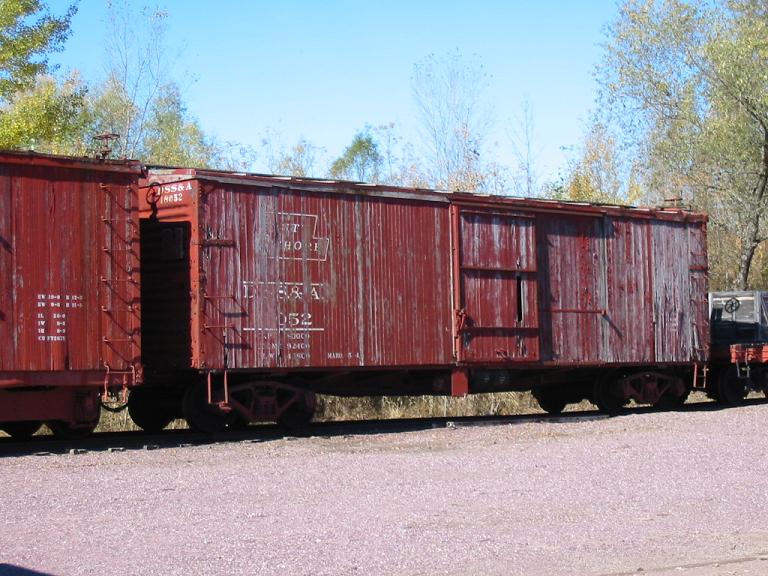
When you picture a train car in your head, there's a very good chance a boxcar is the first thing that comes to mind. That's because boxcars are the gold standard of the rail freight world, making up the majority of many trains. Boxcars feature a solid roof and sliding doors in the center of each side, making it easy to load and unload palletized goods and other bulk items.
Common boxcar freight includes:
- Consumer packaged goods
- Auto parts
- Paper reams
- Canned goods
- Bagged products
HOPPER CARS
.jpg)
Unlike boxcars, hoppers are specifically designed to transport loose, unpalletized commodities. They are typically loaded from the top and feature doors on either the side or underbelly to dump their cargo. Hoppers come in two main varieties: covered and open-top. Covered hoppers have a roof and are best for free-flowing commodities while open-top hoppers—as the name suggests—are ideal for products that aren't likely to be affected by the elements.
Common hopper freight includes:
- Coal
- Ore
- Salt
- Sand
- Grain & wheat
- Corn
- Sugar
- Fertilizer
FLATCARS
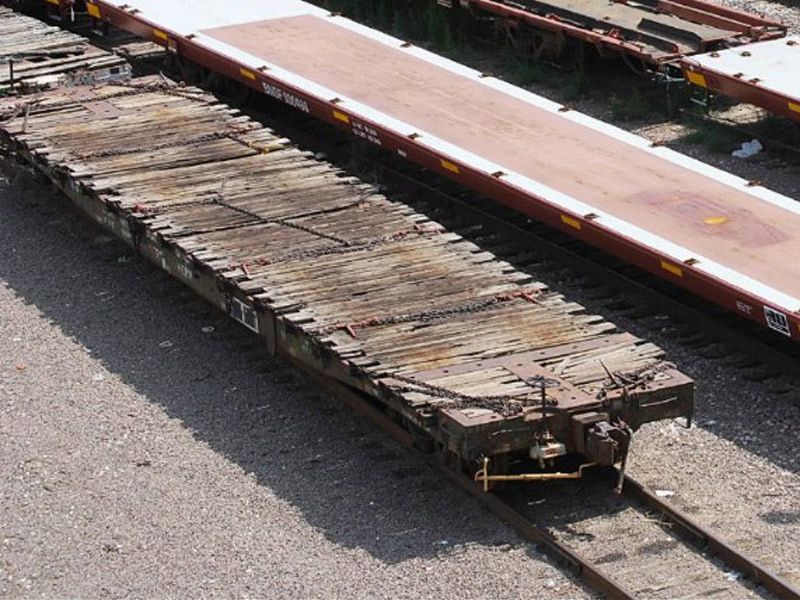
Flatcars consist of a flat, open deck that's typically made from wood or steel. They're primarily designed for carrying unusually large, long, or irregularly shaped cargo. Some flatcars contain bulkheads (walls on each end), center beams, and tie-down points for additional support. Due to their open design, flatcars are a staple of intermodal freight.
Common flatcar freight includes:
- Long poles & pipes
- Logs & cut lumber
- Steel plates & beams
- Wind turbines
- Oversized machinery & equipment
- Intermodal containers
TANK CARS
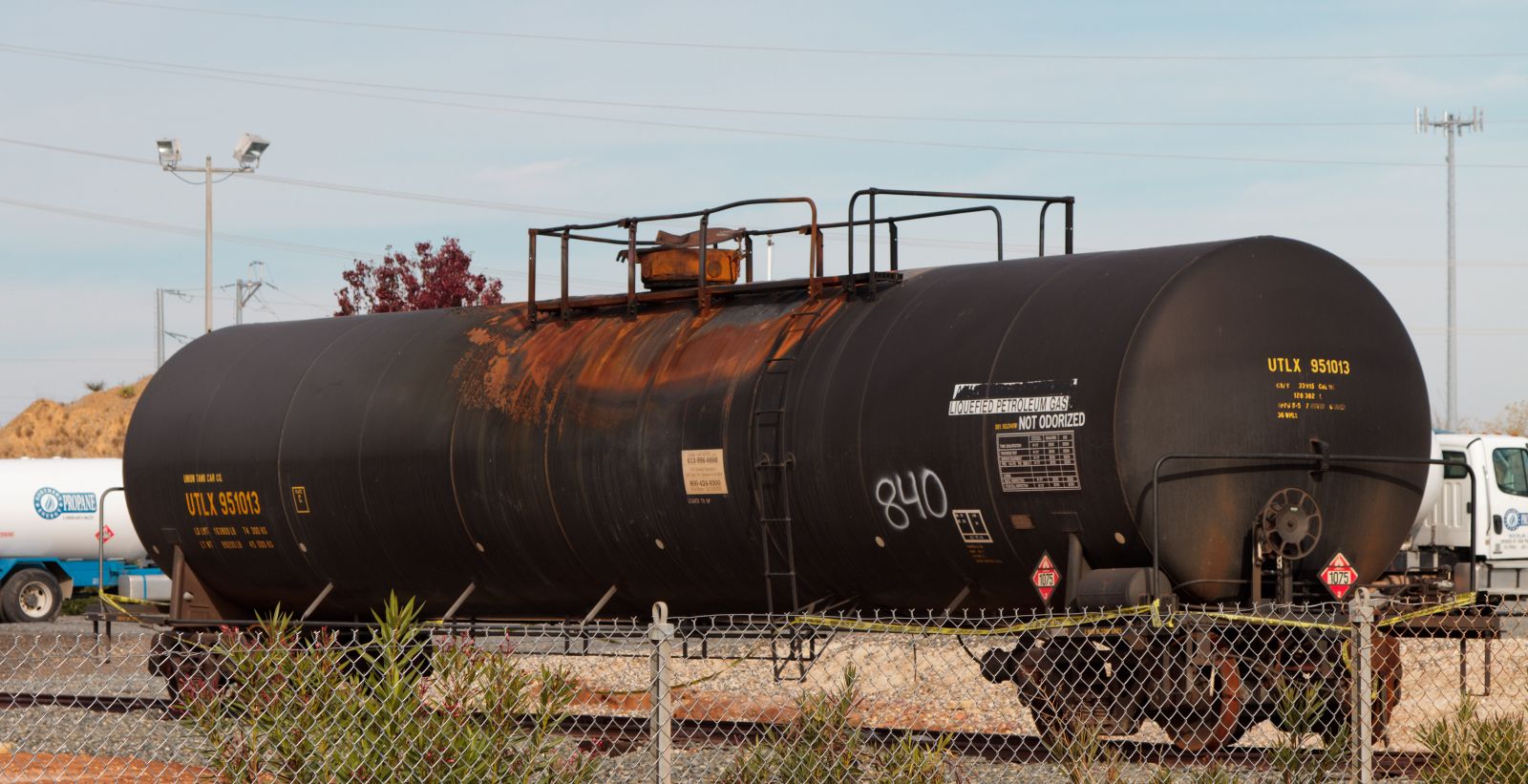
Tank cars, or tankers for short, are designed to carry liquid and gas commodities. Tank cars are long and cylindrical tubes with a valve on the top for loading and a drain on the bottom for dispensing. Depending on their contents, they can be lined with steel, glass, plastic, or another specific material.
Common tank car freight includes:
- Oil
- Water
- Chemicals
- Petroleum-based products
- Liquid hydrogen
GONDOLAS
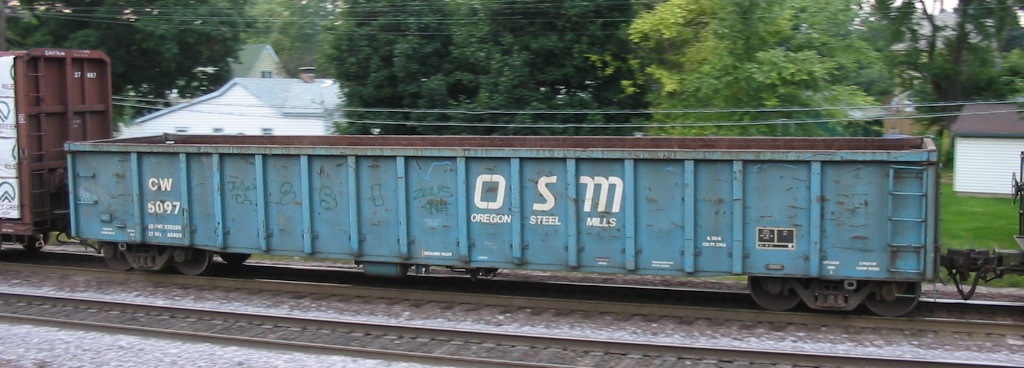
Gondolas are open-topped rail cars with low sidewalls, making them ideal for higher-density bulk cargo. Unlike open-topped hoppers, gondolas have no side or bottom release doors and thus cargo must be manually unloaded from the top.
Common gondola freight includes:
- Scrap metal
- Steel plates & coils
- Rail track & ties
- Gravel
- Construction debris
- Miscellaneous waste
COIL CARS
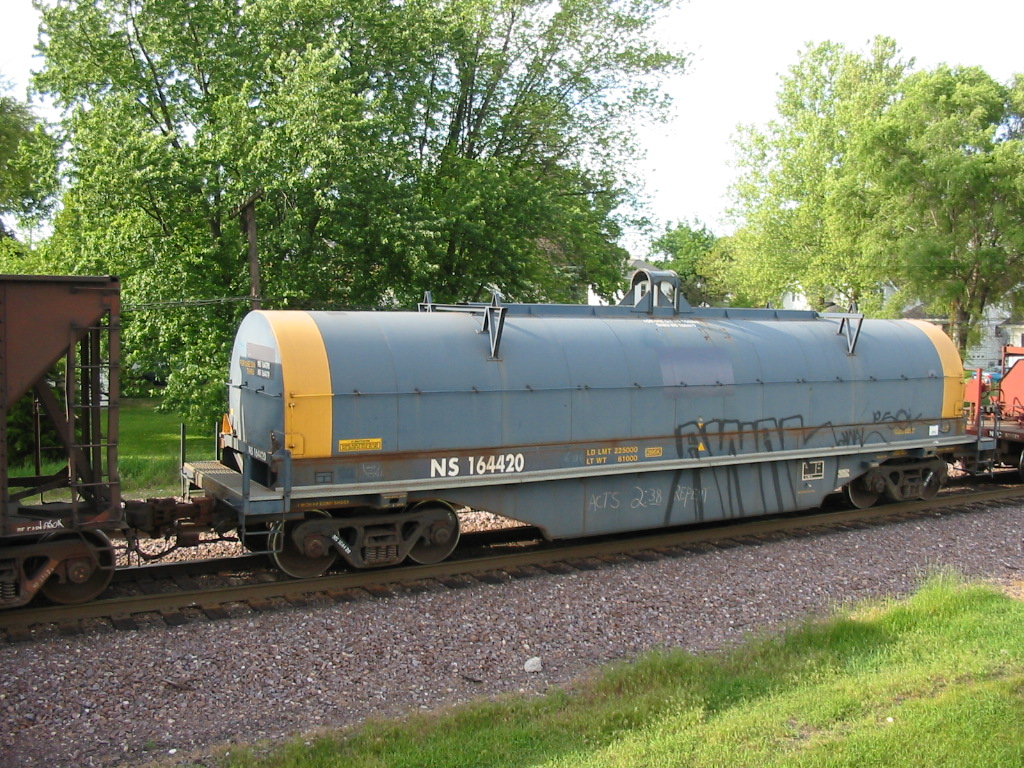
Though they bear more resemblance to tankers, coil cars are actually a subset of gondolas. Their cylindrical design makes them ideal for transporting coil-shaped products, hence the name. After they're loaded, coil cars can be left open or fitted with a metal "hood" to cover and further secure the cargo.
Common coil car freight includes:
- Steel coils
- Copper coils
- Plastic tubing
REFRIGERATOR CARS
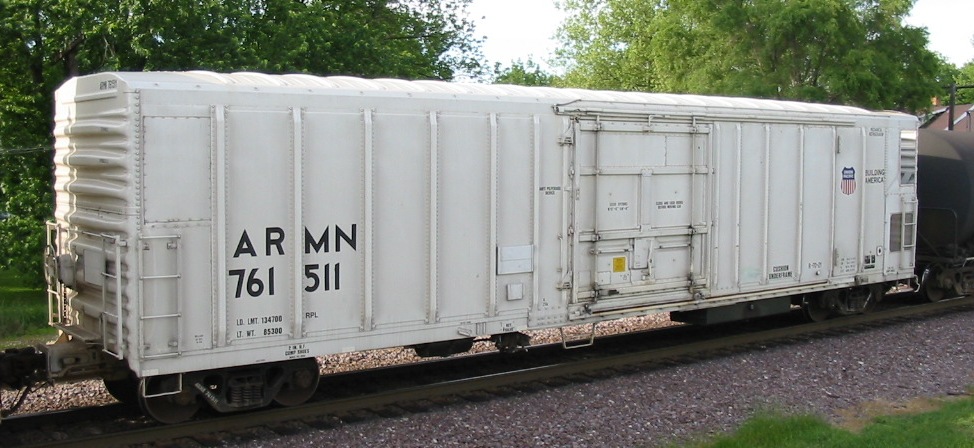
As the name suggests, refrigerator cars—or "reefers" for short—contain a specialized cooling apparatus designed to keep the cargo at a particular temperature. These climate-controlled cars are ideal for frozen and perishable food items and are often shipped to cold storage facilities across the country.
Common refrigerator car freight includes:
- Frozen meat & fish
- Fresh produce
- Milk
- Beer
- Ice
SPECIALTY CARS
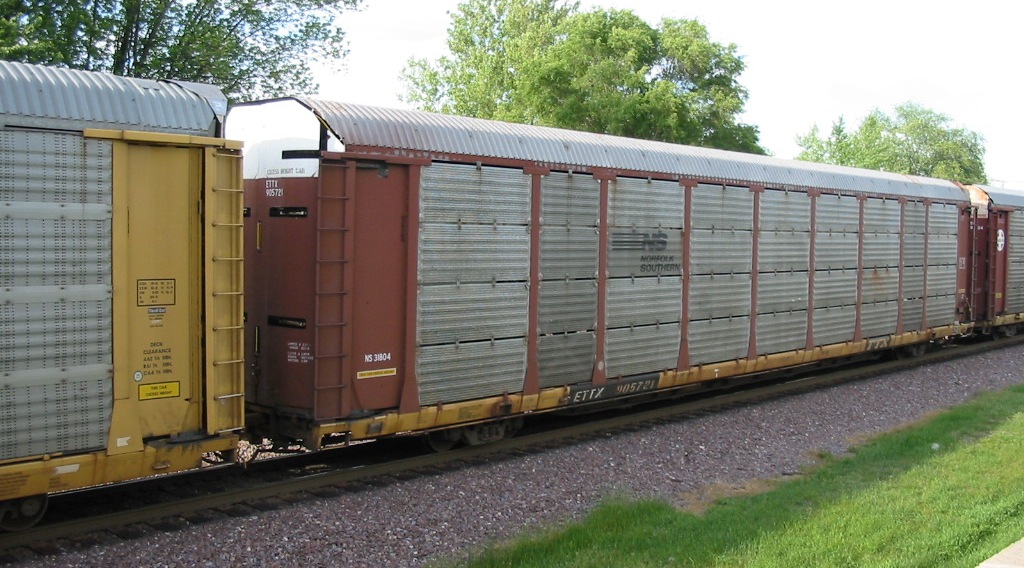
Of course, there are always instances when a particular commodity is not a good fit for any of the above-mentioned rail cars. Whether the cargo is too large, fragile, or unusually shaped, there is likely a specialized rail car for just such a case. Common specialty cars include ballast cars, side dumps, and multi-level auto racks, amongst others.
Common specialty car freight includes:
- Automotive vehicles
- Ballast
- Aggregate
- Miscellaneous items
TRANSPORT YOUR GOODS WITH THE RAIL FREIGHT EXPERTS AT SEMINOLE GULF
If you’re looking to ship lumber, building materials, aggregates, plastics, LP gas, or any other commodities in Southwest Florida and beyond, we’re the experienced partner you need.
Since 1987, we’ve been providing our customers with rail freight transportation, transloading, regional trucking, and warehousing services. Contact us today to discuss your supply chain needs.
